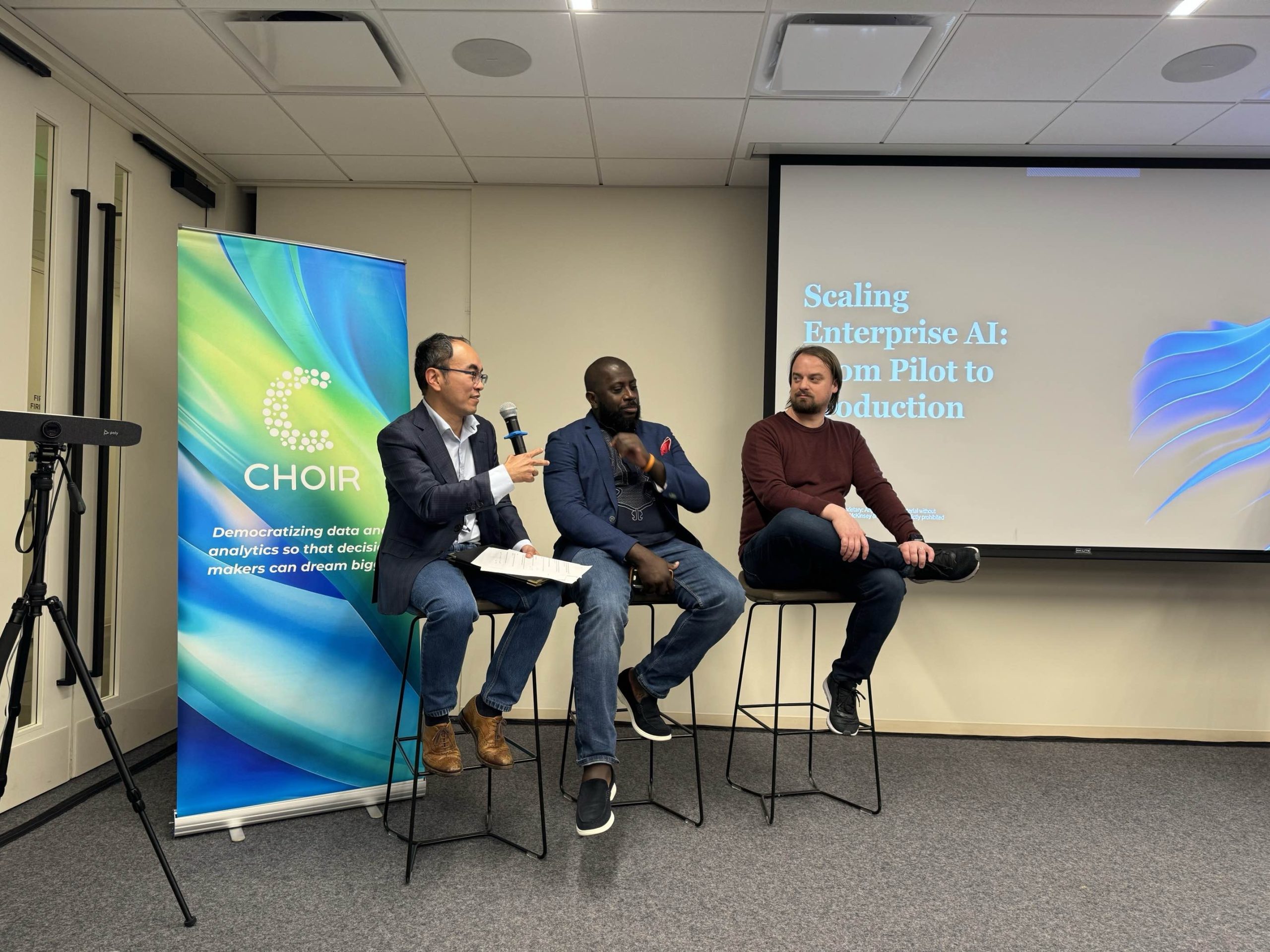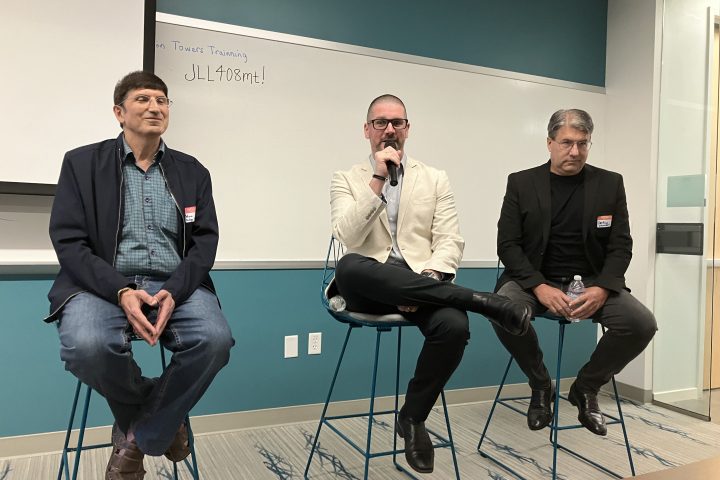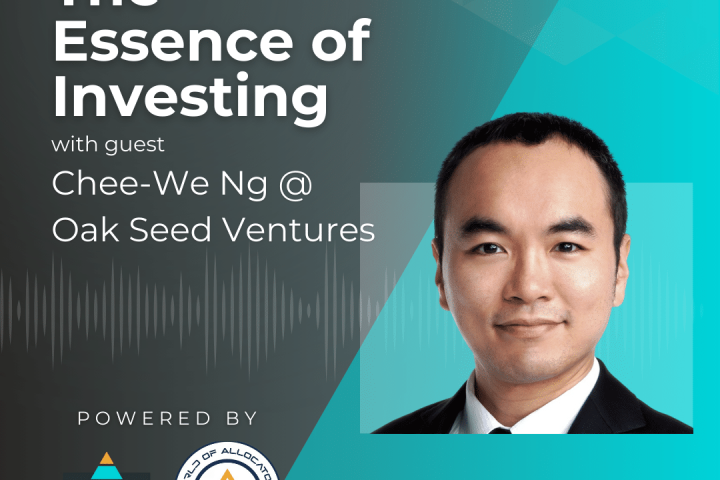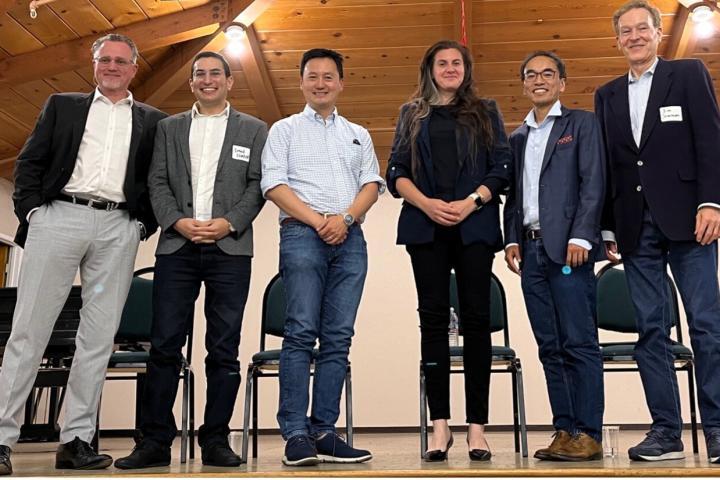I had a blast organizing and moderating a second AI panel. “Real-world Applications and Challenges of Generative AI in Enterprise” jointly with Harvard Business School Association of Northern California and McKinsey.
Our panelists were Brian Goffman, Associate Principal at McKinsey where he co-leads the Generative AI practice in software, Harshini Jayaram AI strategist at Distyl AI, Nikos Georgiades, Senior Expert Advisor for McKinsey and Co-founder & Strategy Advisor of a startup CHOIR AI, David Van Bruwane, CEO of Fairly.Ai and Awah Teh, VP Data Governance & Privacy Engineering at Capital One. I’m the founder of Oak Seed Ventures.
Generative AI – State of Affairs and Future
Brian kicked off the panel by sharing McKinsey insights on Generative AI. 70% of the enterprises have launched a Generative AI powered solution. Though early adopters are adopting Generative AI to gain competitive advantage over competition, many challenges remain. These include cost, tech integration, talent, reliability of output, but also ethics, compliance and IP risks.
Harshini shared with the audience Distyl their progress in taking enterprise clients through the generative AI journey. The first step in this journey has been information retrieval, a customer service chatbot that can provide answers to questions. The second step is being able to take action for customers. This is where enterprises are now experimenting. Where the future is headed is having autonomous agents that can make decisions on behalf of humans.
Nikos shared with the audience the pioneering work that CHOIR AI is doing to democratize the access and analysis of enterprise data. Focusing on the Pharma Industry initially, CHOIR AI enables managers to perform analysis on business data in management meetings in real-time without the current several days to weeks lag, by which time often a certain analysis may no longer be relevant. AI thus opens up new capabilities, not simply replacing human labor. And this is done with (almost) no hallucinations, and without sharing enterprise internal data to Open AI, Microsoft or other providers of LLM models.
David shared the critical work that Fairly.AI is doing to enable financial institutions stay compliant to regulations, an area that Awah at Capital One concurs is critical because it is the foundation of trust. Capital One is investing a lot into infrastructure and talent when it comes to AI. An area that Awah is very concerned is avoiding bias. And data quality and understanding its lineage is crucial to the performance, utility and success of any AI system, because garbage in garbage out in the world of AI and computer science.
Challenges – Hallucination, ROI and others
The panel and the audience had a lively debate on many topics, including “hallucination”, return on investment in AI and others. “Hallucination” is still unavoidable, and is managed by different methods. This includes chain of verification, experimenting and testing the technology where it is further away from the customer and less risky first. The panel and audience debated the humans seem to hold a very high standard for AI when humans make mistakes. May be its more appropriate to compare the accuracies of AI to human, but it seems like data is lacking for human performance. Nonetheless, it is important to note that for application in social media, the standard required may be lower than other industries like finance and pharmaceuticals.
The audience and panel also debated about the return on investment on AI, whether enterprises have made money from AI or that investment in AI will wane. The consensus view was that AI is now table stakes. Though enterprises are constantly evaluating the effectiveness of AI investments, they may be under pressure to continue investing to stay competitive.
Thank you Brian, Harshini, Nikos, David and Awah for your time, insights and lively debate!






